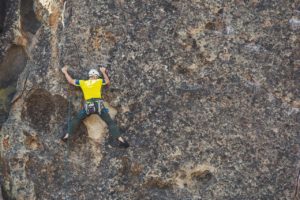Recently, I gave a talk to residents enrolled in a Global Health program at the University of Toronto.
I was hoping to help them figure out how to find what they really valued and how to incorporate that into their careers. I thought I’d share some of the insights with all of you.
Here, essentially, is part of my talk.
This talk was about my career path. But I didn’t want it to be about me.
In the end it’s always about you and your career. By reading this post (attending this talk) you might be curious about how to delve deeper into your self and figure out some core things about what you believe. Perhaps you want to figure out what it is you might really value and how to incorporate it into your career in some way.
There is no one clear path in medicine.
You’re each on an individual journey in this career and will end up creating a practice that is specific to your own unique needs. What worked for me may totally not work for you and that’s totally fine.
This is about you.
So let’s do a little bit of an exercise.
I adapted this from Mark Manson’s website. So full credit goes to him. He wrote “The Subtle Art of Not Giving a F@Ck”. It’s actually a pretty good read with a lot of valuable insights. But nonetheless, I apologize for some of the crudeness of the questions. They’re his, not mine.
Firstly, forget about finding your purpose. That word carries too much weight. It implies that we all have some sort of unique purpose in life and if we don’t figure out exactly what it is then we are doomed to failure. I’m still trying to figure out my “purpose” and it seems to keep changing every few years.
Instead, let’s think about this.
“How can I spend my time doing work that is important?”
Grab a pen or paper, or type it out in your laptops. Take the time to think about and develop these answers. Perhaps consider sharing them with a friend or a loved one. Think about these on your own time. And have fun with it. Don’t take this too seriously.
To begin. We’re going to go within.

Close your eyes. Take a deep breath. For the next minute or two just focus on the sensations that are going on in your body. The breath on your nose. The feeling of your feet on the floor. Your butt on your seat. What sensations can you pay attention to in your body. Don’t worry about what you’re thinking and focus on what sensations you’re feeling. Just try this for a couple of minutes.
Okay. Great.
Now here are some important questions for you to consider. Take a few minutes with each one.
1. What struggles or sacrifices are you willing to tolerate?

Everything sucks, some of the time.
What might you be willing to give up? Would you be willing to delay starting a family? Are you able to stay up all night? Do you want to spend a lot of time overseas (or on call) at the cost of being away from your loved ones back home?
What are you willing to stick with it through all of the rough patches that will inevitably arise?
2. What is true about yourself today that would make your eight year old self cry?

What brought you joy as a child that you have lost touch with?
When we’re young we don’t really care about how good we are at something we love. We do it regardless of what other people think. We just do things because we love to do them. Creating, writing, drawing, dancing and playing.
What do you love to do that you’ve lost touch with?
3. What makes you forget to eat (and poop)?
(Interestingly most the residents there said “residency”. But in a very sarcastic way)
Great thinkers like Einstein were famous for their incredible work ethic. But often it didn’t feel like work to him. He was so deeply absorbed in his work that the hours slipped away and he had to be reminded to do basic tasks like eating and sleeping.
For me it’s reading, learning and creating. Recently through writing.
Is there anything you do that makes you lose all sense of time and place?
What are the principles that lie behind that thing? Is it teaching? Organizing? Solving problems? Self-improvement?
How can you apply that to what you do?
4. How can you better embarrass yourself?

We all have to start somewhere. As you might know from your residency, learning often comes from making mistakes over and over until you slowly change your practice.
Most of us are so worried about being bad at something that it keeps us from putting ourselves out into vulnerable situations.
What is keeping you from putting yourself out there? Is it fear of failure? Or fear of what others might think?
Would things be different if you could step through that fear and take some chances?
5. How are YOU going to save the world?
What are the problems you want to start tackling? What issues tug at your heartstrings the most? Is it climate change? Health inequality? Education?
What does your ideal world look like? How are you going to work to make the world a little bit of a better place?
6. If someone put a gun to your head, forcing you to leave the house all day to go and work on something. Where would you go? What would you work on?
Okay, not the best image. Mark Manson, not me.
But if you were forced to spend all of your time working on a passion or personal project, what would you work on?
Would you study and learning something new? Would you develop a new skill? Improve on something? Read a good book?
What kind of places do you do your best work? Do you work better alone or in the company of others?
7. If you knew you were going to die five years from today, what would you do and how would you want to be remembered?

What do you want your legacy to be? Time to start working on it now.
Closing thoughts
The greatest lesson for me, throughout my career so far, is that meaning and purpose underlies everything. When you have those, it doesn’t matter necessarily what the external circumstances are. You can endure a lot if you have a good reason why.
In my personal experience, having meaning and purpose allowed me to survive and thrive doing humanitarian work in an active war zone and refugee camp setting.
Doing purposeful work (humanitarian work for me) has given me a fulfillment and satisfaction that is really hard for me to get in any other way.
What is meaningful to you?
Going forward, I’m not exactly sure what my career holds or what path my life or career will take me, but I do know that it’s really important to keep doing things that give me meaning and purpose.
Trying to make things just a little better. Even if it isn’t perfect and involves some sacrifice.
I couldn’t encourage you more to do the same.
Remember those core values that brought you into medicine.
Why did you want to be a doctor in the first place?
It’s important to be in touch with that deeper part of yourself that wants to do some good.
Throughout your career, there are going to be many roads. You may be enticed to take the ones that result in more money or a better lifestyle for you. But at the cost of giving up some of these core values.
While I think it’s good to explore many options and try different things, I would encourage you to at least do some work that is in line with those values you hold deep.
However that happens is up to you. I certainly am not telling you to go and do humanitarian work in difficult contexts as that is an extremely personal decision. There are many incredible ways to make a difference in medicine.
Just remember what brought you into medicine in the first place. Try and figure out what you value and stay true to it. Even though you’ve changed along the way.
Try and sort out what you can do with your time that is important.
Know that it’ll never be perfect.
And that it matters. Make sure that it matters to you.

